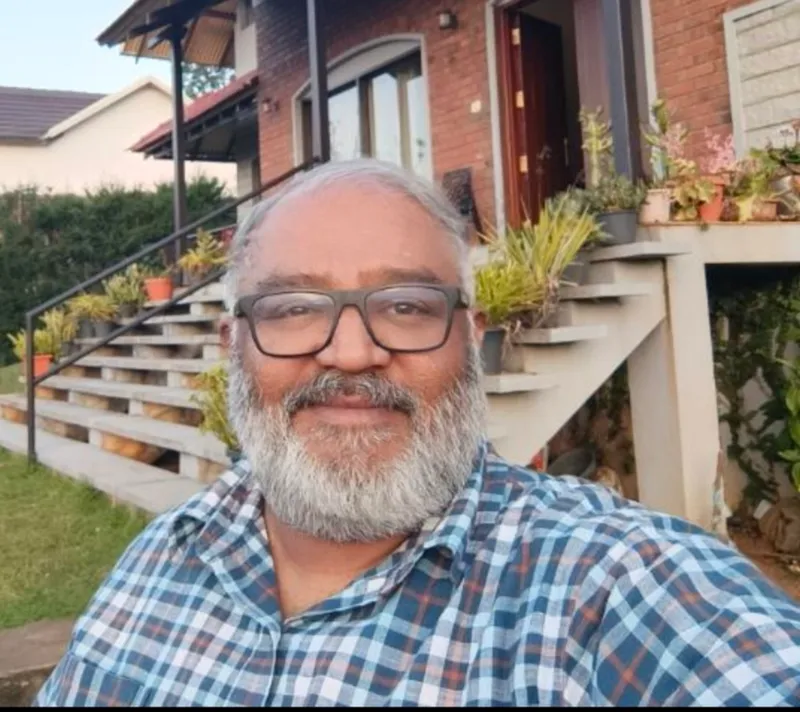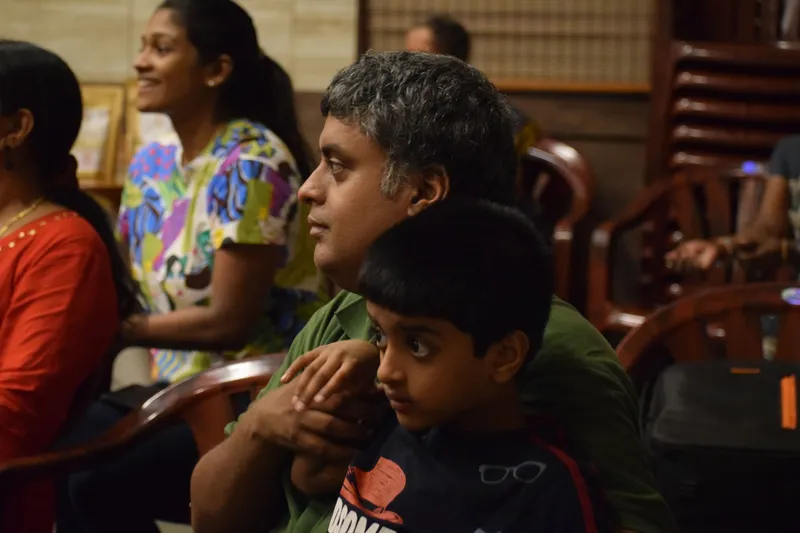This Chennai-based support group is helping families of children with special needs
Special Child Assistance Network (SCAN) is a support group for families of children with special needs that is addressing education, mental health, and employability.
Chennai–based Devika* and her husband gave their son Kannan*, who is on the autism spectrum, a bicycle to explore the city to his heart’s content. But they had one condition–that he must always have his phone on him. His phone had a tracking app, a payment app, and all the emergency numbers and SOS contacts he would need.
Despite all the pre-emption and surveillance by parents, Kannan went missing during the Covid-19 lockdown in 2020. “He went cycling with his father at around 6 am and with one wrong turn, we lost him,” says Devika.
In less than three hours of Kannan going missing, Gopinath Ramakrishnan, Co-founder and managing trustee, SCAN, along with other disability rights activists and parents, circulated Kannan’s photograph to police stations and public spaces, and widely shared it on social media. Sixteen hours later, around midnight, Kannan was found wandering in T Nagar in Chennai, where he was identified by the police and brought back home.
Registered as a trust in 2017, SCAN, its members, police officials, and a network of disability rights activists, have helped track down 10 to 15 children and young adults with special needs in Tamil Nadu.
Apart from finding missing persons with special needs, SCAN also works as a support group to parents with special children.
Search for missing people
Disability rights activist Vaishnavi Jayakumar says there is a need for exclusive data on the number of special needs children and adults who go missing, as the dynamics of identifying and finding them are complex.
“The 24-hour window that is usually given to lodge an FIR for a missing person can be dangerous for adults with special needs. For instance, for those with autism or dementia, it may not come naturally to take food or hydration. Replicating the system of ‘purple alerts’ for physical, mental or developmental challenges like in the west, may make sense in India too,” she says.
SCAN has also put together a list of things for the public to look out for to identify a person with special needs who is lost.

Gopinath Ramakrishnan, Co-founder and managing trustee, Special Child Assistance Network (SCAN)
“In 2019, we held a campaign that explored ways to spot a special needs person who is lost. For instance, they may struggle to make eye contact or be gazing downwards, talking to themselves, hesitant about where they are going and have a gait that is unsure,” says Ramakrishnan.
LV Jayashree, Executive Director, The Spastics Society of Tamil Nadu (SPASTN), says, they literally dovetailed on SCAN’s connections when two of their children went missing years ago.
“Gopi set in motion a series of actionable efforts that led to the children being found. He also guided us to link all messages to a social media post that could be updated,” she says.
The first thing Ramakrishnan does is get all the accurate and relevant information about the missing person. “We make it a point to put it up on Facebook or websites where updates can be added, as opposed to circulating it on WhatsApp, where forwards can be dated and misleading,” he says.
“We encourage parents to lodge FIRs so that the word is spread among police stations across the city, and add the FIR number to the post. We reach out to the railway police, law and order, and Corporation officials from the jurisdictions where the child has gone missing or has been spotted.”
A group for parents, by parents
Ramakrishnan, who himself is a father of a child who had developmental difficulties, started SCAN along with his wife Mini and another couple back in 2011. It was started as an informal group of special parents who would hang out together, discussing day-to-day challenges, planning potlucks, and enquiring about behavioural and occupational therapists.
The group then started assembling regularly at a special needs centre started by one of the moms in their group. These meetups eventually became a space for music and dance performances, cooking, therapy, art classes, and workshops for parents.
After the centre closed, the tradition continued at cafes, schools, and public spaces at least once a month where the children could freely unwind along with their parents.

At SCAN meetups, special children and parents are encouraged to feel free and enjoy music and dance performances in a way they never can in a traditional auditorium or performance space
Monali Bala, one of the mums in the group, has been curating music shows with artists such as Sangeetha Sivakumar, Vignesh Ishwar, and rock band 7even, among others, who perform free of cost, and gift special kids and their parents an occasion to soak in an evening of entertainment without the stress of fitting in.
“We find the musicians are also happy to play along,” says Ramakrishnan. “We once had a sarod player who was enveloped by our children trying to touch his instrument, shouting, clapping, and dancing in joy. He loved the experience and has been a regular at our events ever since,” he says.
“We feel a sense of triumph when the general public joins us to celebrate with us, like us. To me, this is what true inclusion looks like.”
What is noteworthy is that our children get to enjoy music and dance in a way they never can in a traditional auditorium or performance space, says Ramya Jayaraman, an IT employee and mum of a ten-year-old son on the autism spectrum. For her, SCAN meetings became the sole source of therapy two years after her son was diagnosed, a period that is also hardest for special parents.
“I used to take him to beaches, malls, and theatres, because I was determined to give him the social interaction he needed. But as a parent, I observed when we were made to feel different, stared at, or when kids at a play zone pushed my son away,” she says.
“I found SCAN when my son was four, and at these events, I would be pulled up only if I scolded him or asked him to behave a certain way. The idea was to be ourselves unabashedly, and for once, I felt completely at home,” says Jayaraman.
Bringing special mums back into the workforce
Studies show that mothers who have children with special needs have greater demands in caring for them, which directly impacts their work participation. Having differently-abled children who require frequent medical attention is time-consuming for mothers, and finding appropriate child care services is even more difficult and costly, says a report by the Institute of Women’s Policy Research, Washington.
“A whole bunch of our mothers are doctors, lawyers, and chartered accountants who haven’t worked in close to two decades,” says Ramakrishnan.
To address this, Deepa Vijay, a trustee at SCAN and a special mother who took over her family business, is putting together a programme that can get more mothers in their group back to work.
“A large number of parents, especially mothers of special children, stop working after their child has been diagnosed. In the early years of the diagnosis, caring for the child takes up all their headspace and time, and later, they begin tending to their ageing parents and in-laws,” says Vijay.
“This drains mothers emotionally and leads to them developing OCD and depression. In all fairness, I saw that these women needed to engage in something they liked, which was outside of caregiving. Considering therapies for special kids aren’t cheap, a little extra money wouldn’t hurt. But above all, financial independence boosts their confidence greatly,” says Vijay.
Over the last six months, she has been in talks with legal firms, finance, pharma, and IT companies to create flexible work arrangements for the special. She has also been working to refresh their soft skills and smoothly transition them back into the workforce.
SCAN’s role as a group run by parents of those with special needs makes it a resource pool for vital necessities such as insurance planning, fund management, and supporting the child after their parents fall ill or have passed away, with employment opportunities, therapies, and day-to-day activities (for those with developmental difficulties and degenerative illnesses).
“An institute can provide education, vocational training, and work, but pressing questions about what comes after can be addressed by parents who bring the cumulative wisdom of their lived experiences,” says Jayashree. “And this is perhaps the most important role of SCAN--as a community support system that is committed to taking care of their children throughout their lives.”
(*Names have been changed on request)
Edited by Megha Reddy






